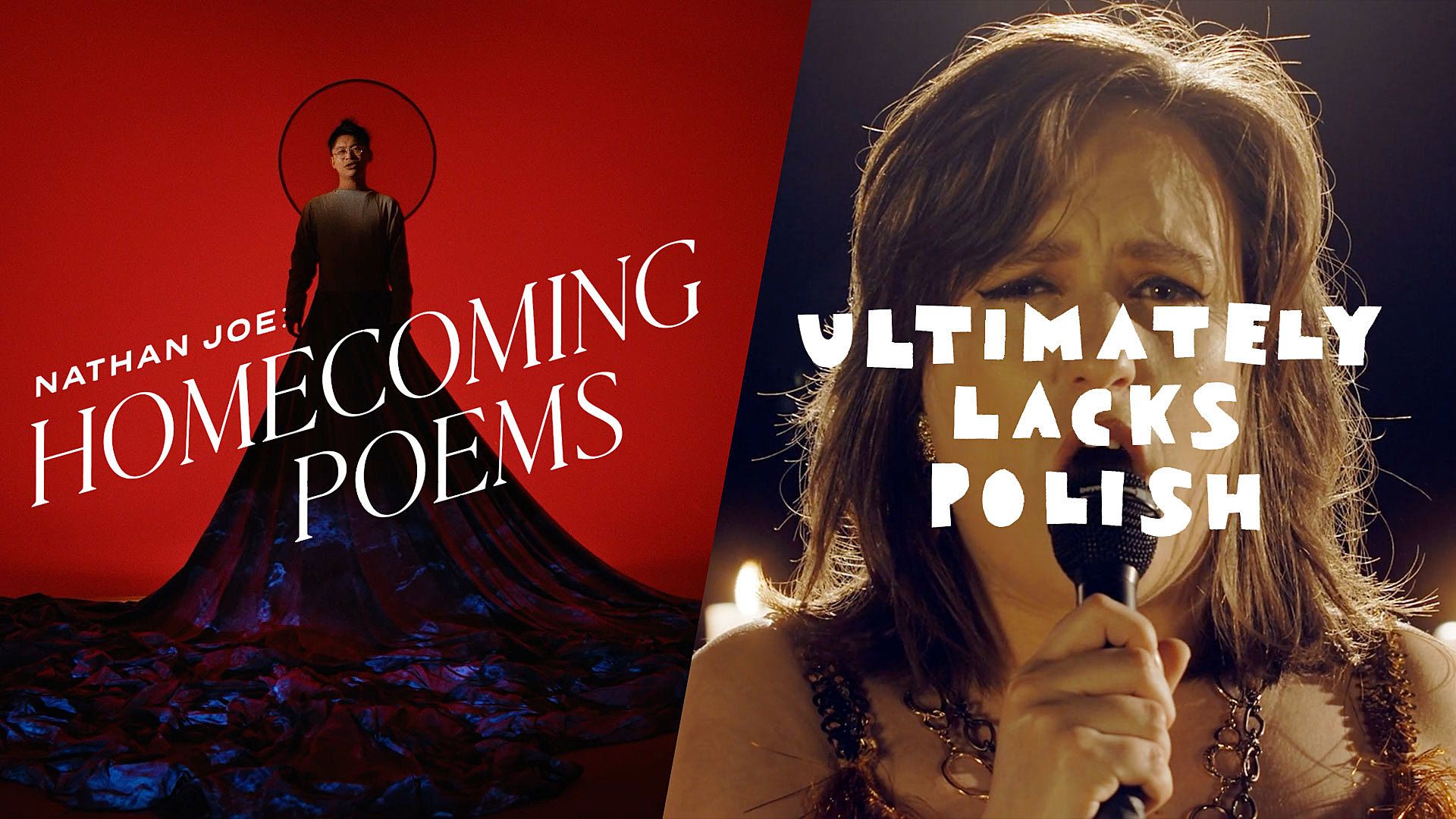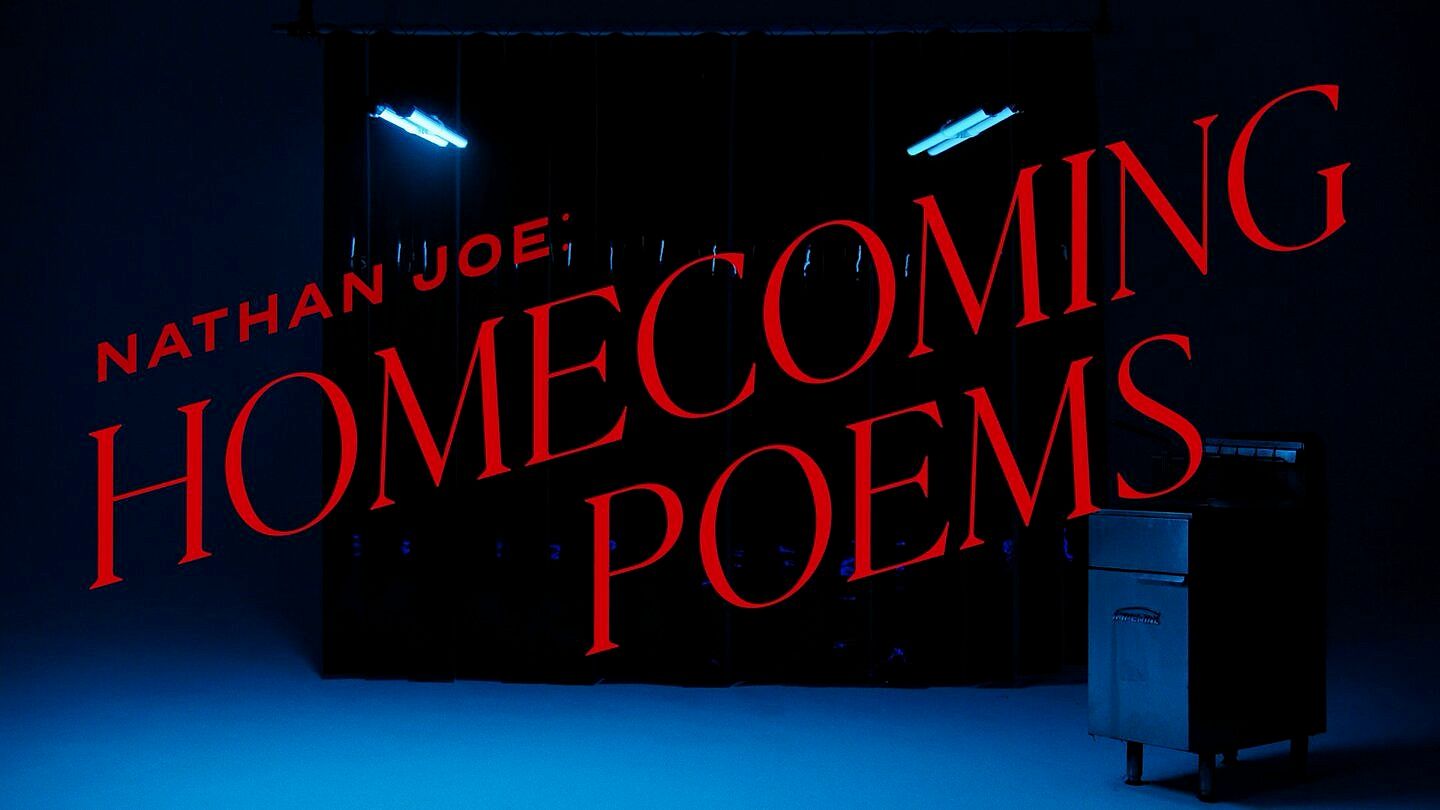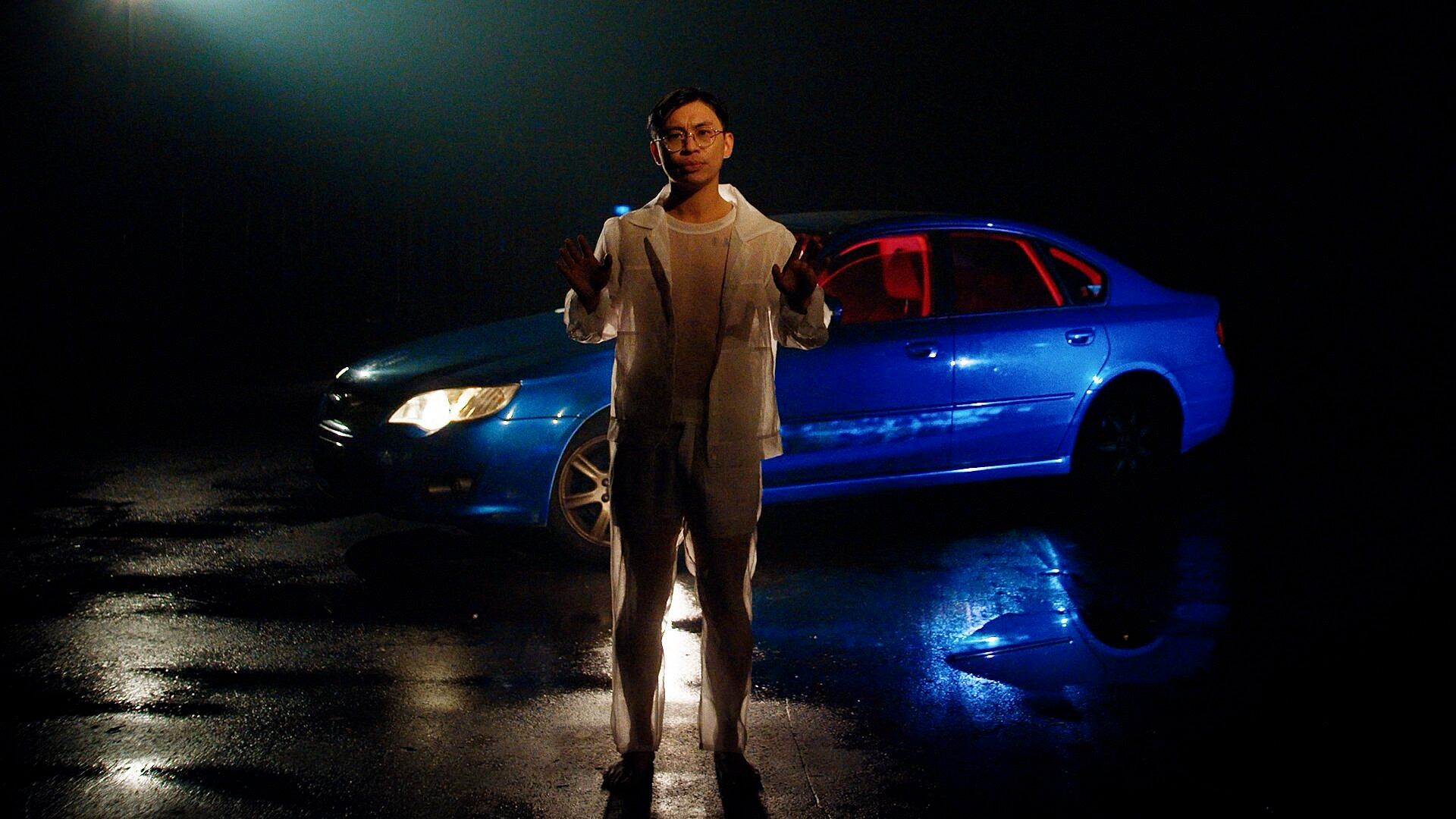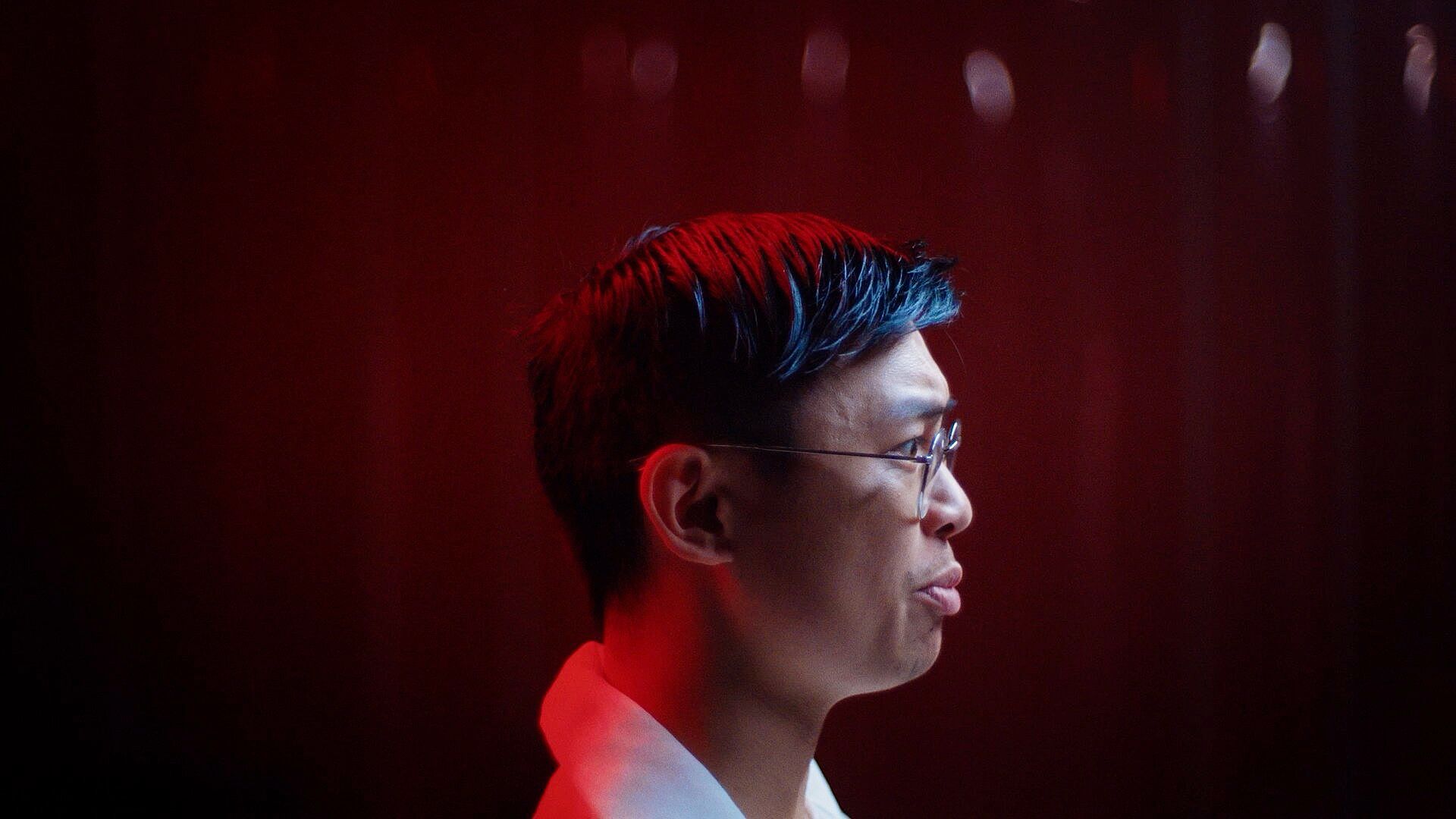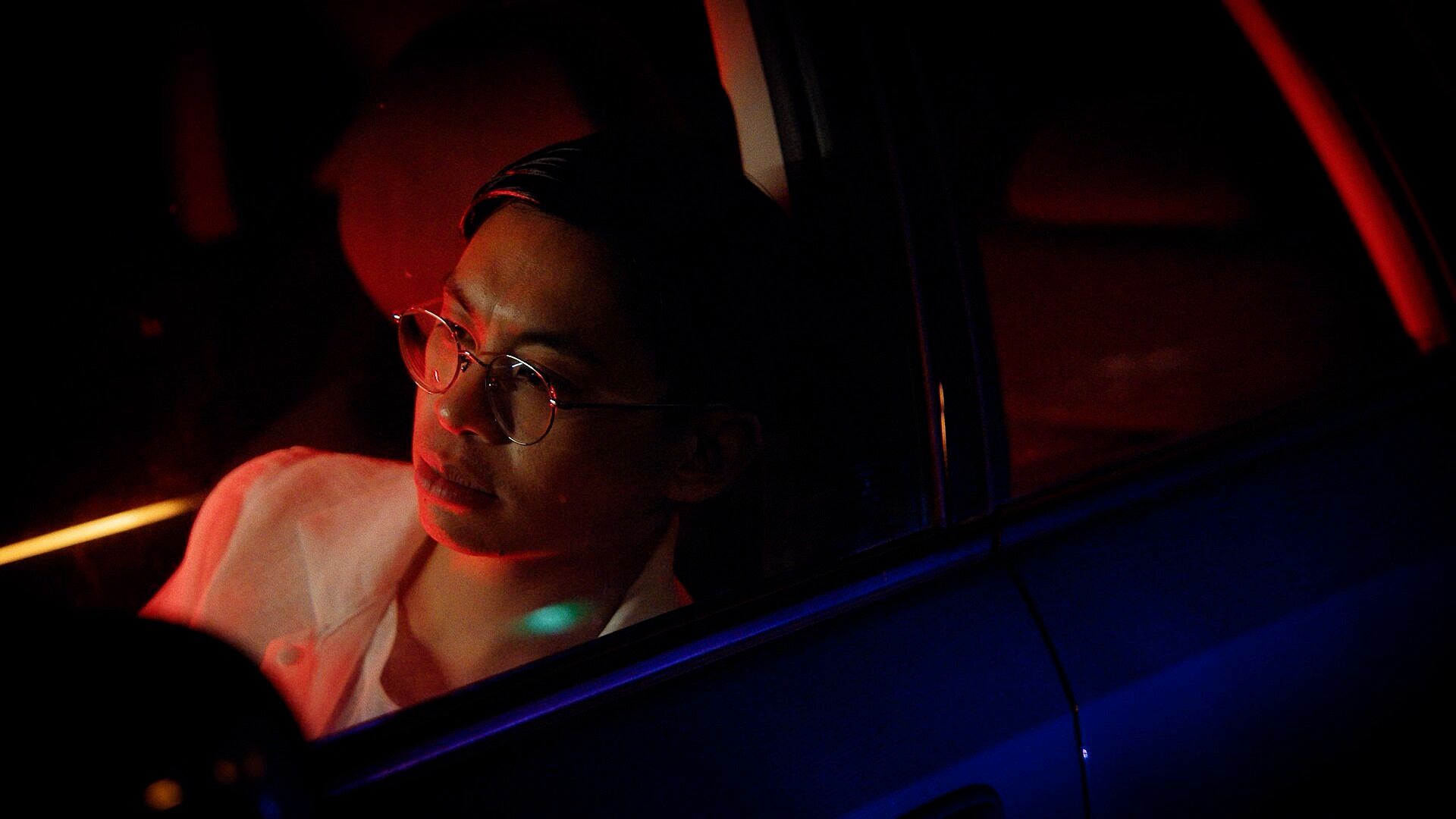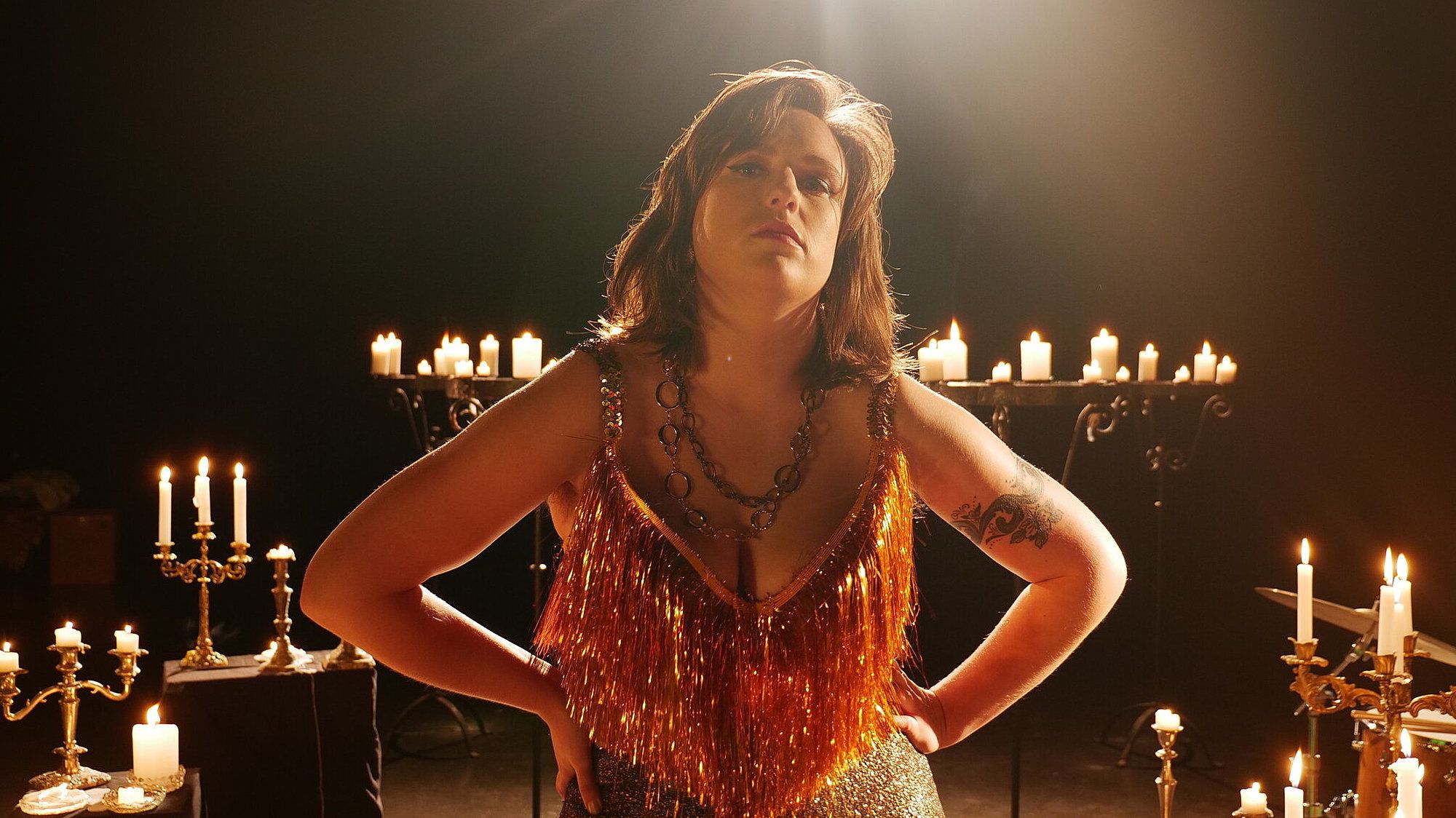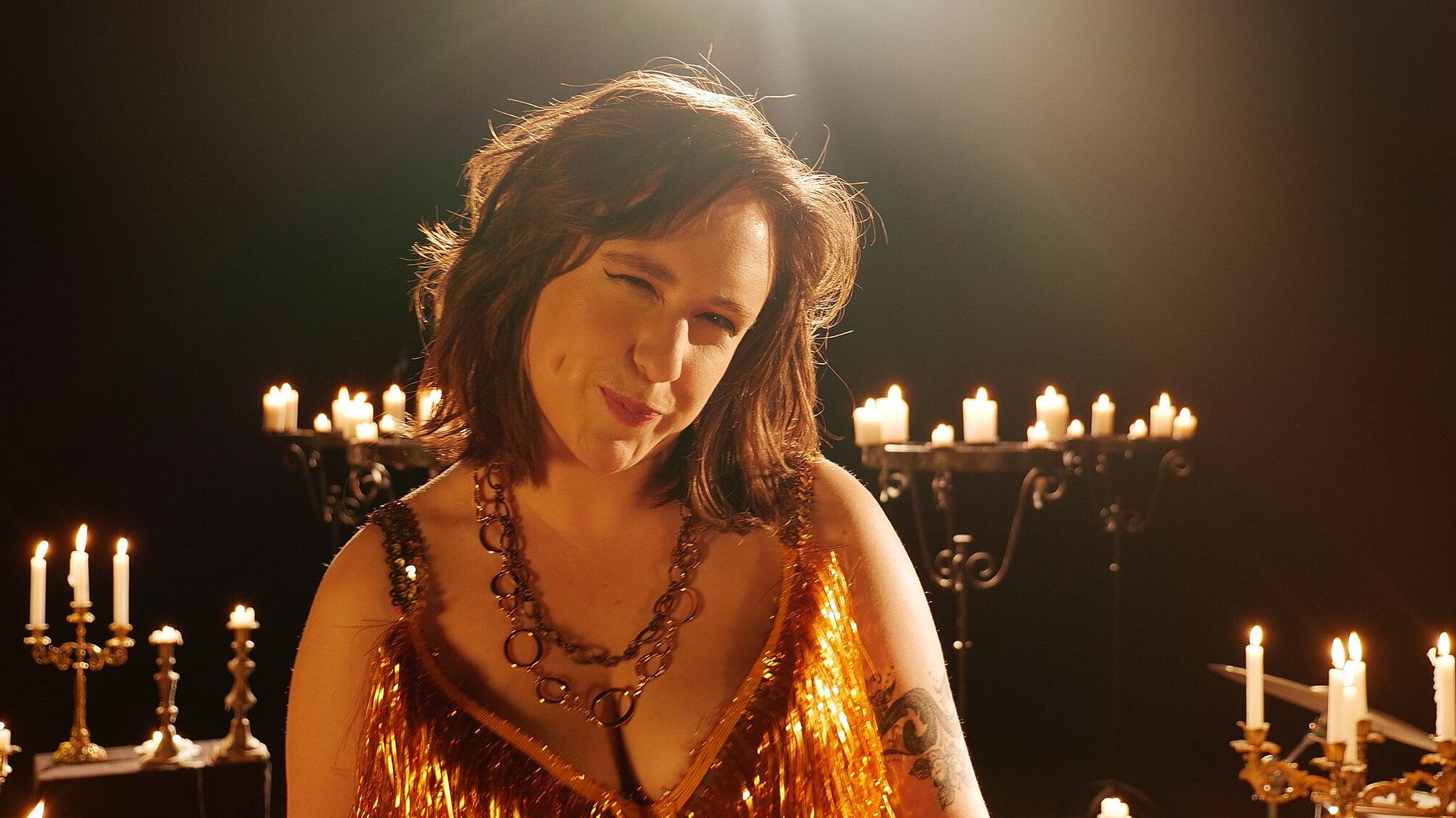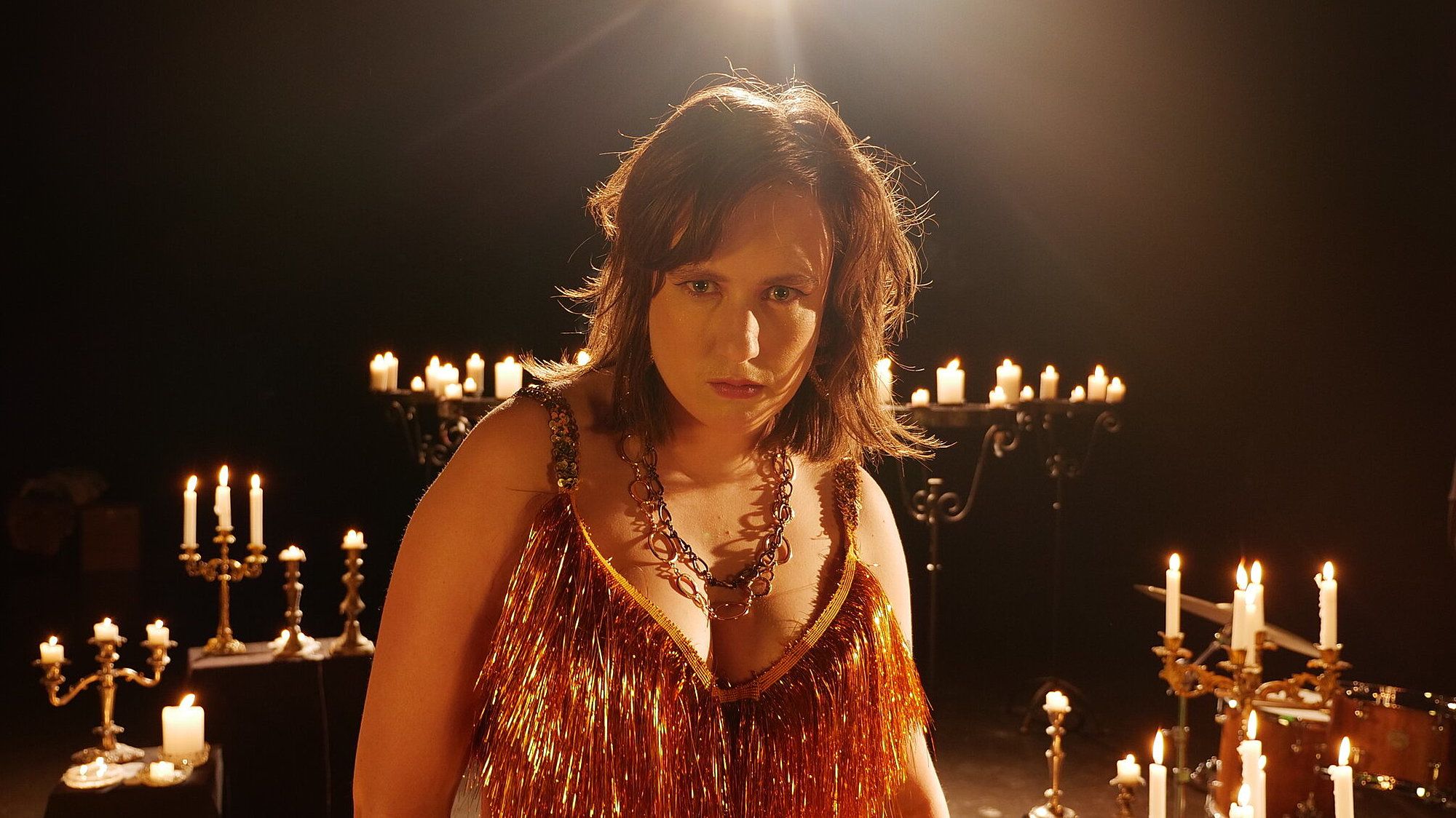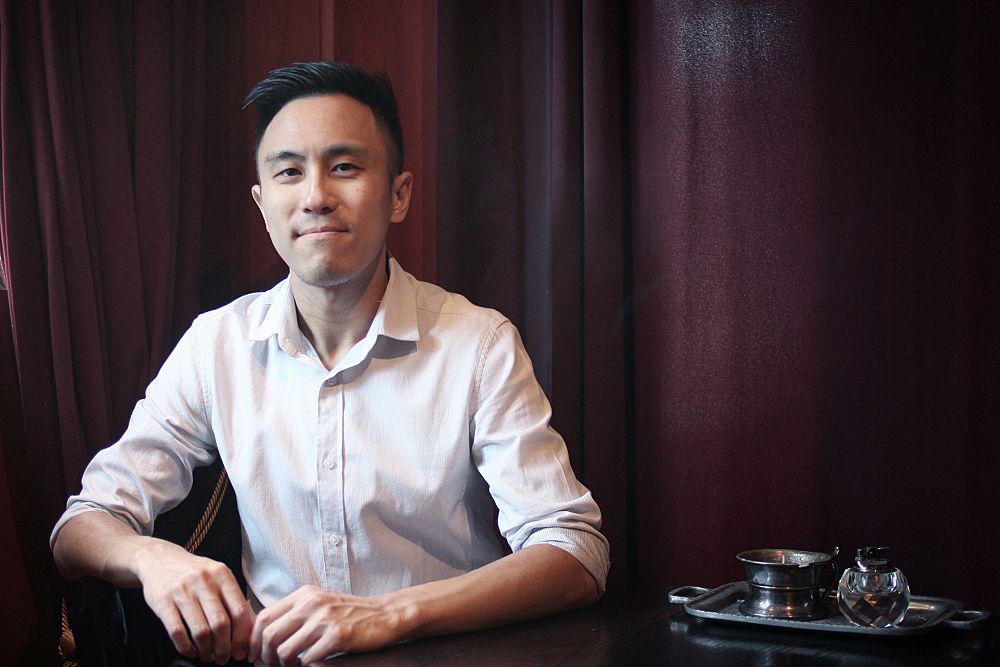Capturing the Zeitgeist
Poetry's magical possibilities of collaboration and innovation are showcased with Nathan Joe's Homecoming Poems and Freya Daly Sadgrove's Ultimately Lacks Polish, according to Chris Tse.
Poetry in Aotearoa is having a moment right now – it’s splattered across social media, a fixture of bestseller lists, pasted up in the streets on posters, and prominently featured in all kinds of festivals, literary or otherwise. Doing their part to raise the profile of poetry are Nathan Joe and Freya Daly Sadgrove, two poets who have helped to drag poetry kicking and screaming into the 21st century with their charismatic live performances and mahi behind the scenes to produce the expectation-defying, genre-blending shows Dirty Passports and Show Ponies. The pair are the subjects of two new Moving Portraits films produced especially for the Going West Festival.
These films are part of Going West’s ongoing response to Covid-19 and its continued impact on the creative sector. They follow a previous suite of films in 2021 pairing poets with filmmakers, resulting in evocative performance videos that also utilise animation and sand art. Rather than simply moving to delivering traditional panels and events virtually, the festival’s decision to develop and create these short films offers a point of difference. Not only are the featured performers given a high-profile platform to share their art, but the films have employed the talents of a much larger ecosystem of creatives, from directors and cinematographers to set designers and composers.
Not only are the featured performers given a high-profile platform to share their art, but the films have employed the talents of a much larger ecosystem of creatives, from directors and cinematographers to set designers and composers
At a time when artists from all industries are still struggling with postponements and setbacks, these productions show what magic can happen when we’re given the space, time and funding to do what we do best. They are a testament to the talents and perseverance of our undervalued artists. Separately, these films are illuminating glimpses into each poet’s own brand of performance and interests as a writer. Viewed together, they represent the magical possibilities of collaboration and innovation when it comes to poetry, something that many people only ever experience on the page as students or recited at big life moments such as weddings and funerals.
*
Nathan Joe: Homecoming Poems is a suite of three poems that cover terrain often seen in Joe’s theatre and poetry work: race, sexuality and the never-ending search for a definition of ‘home’. It’s a slick, super-stylised piece of filmmaking that brings to mind Beyoncé’s ambitious ‘video albums’ and Nicolas Winding Refn’s moody cult classicDrive, but Queer and Chinese.
Joe is a former national slam poetry champion so it’s no surprise that he comes across as a confident and magnetic performer in this film. He’s ably supported by some bold and unexpected design choices, like the stark representation of his parents’ fish-and-chip shop, and the beautifully off-kilter costumes by Steven Junil Park. Everything is saturated with colour, giving the film a dream-like quality which contrasts with the directness of Joe’s language as he untangles and makes sense of his own experiences with racism and Queerness, and where the two so often intersect.
*
Although the film never explicitly asks the question “What is home?”, Joe’s poems are united by an exploration of departures and arrivals throughout one’s life and the circularity of understanding where one has come from, and what one might return to later in life. For Joe, home is both anchor and destination, although neither is necessarily an easily definable or concrete concept. The multiple versions of home in Joe’s poems each carry relatable and complicated emotions – whether it’s taking pride in the fact that his parents own a fish-and-chip shop, or rolling out a list of things that make growing up in Christchurch difficult.
Joe's ready to give voice to his frustrations: “I’ve never given myself permission to be angry before.”
*
Joe expands on his own experiences by grounding them in the context of contemporary Aotearoa’s difficulties with otherness, acknowledging that he too is “learning and unlearning [his] role in all of this” – this being how all of us uphold stereotypes and let casual racism slide, sometimes as a survival mechanism. As a Gay Chinese New Zealander, Joe has been placed in situations where he must field some truly awkward or inappropriate questions rooted in stereotypes about Chinese people. He tackles these head-on in the film’s first poem, ‘Seven definitive answers to seven questions I have no time for’, with exasperated responses that highlight how often POC are the ones left to do the heavy lifting, when they are expected to play along with others’ ignorance or gloss over unintentional insensitivity. But now he’s done with that and is ready to give voice to his frustrations: “I’ve never given myself permission to be angry before.”
The film’s second poem, begins with Joe contemplating whether or not to come out to his dad while on a road trip
*
The personal and the political intertwine throughout the rest of Homecoming Poems. The film’s second poem, ‘The longest car ride ever endured’, begins with Joe contemplating whether or not to come out to his dad while on a road trip to help Joe move from Christchurch to Auckland. His dad asks him to talk to keep him awake while he drives, but Joe can’t bring himself to say the words that could change or rupture their relationship. In this poem, Joe shifts deftly between sentimentality and the sexually explicit as he speaks of the distance time can create between two people, and whether his ideas of home must be re-examined in light of his decision to move so far away from his parents. This is further considered in the film’s final poem, ‘Call me, Ōtautahi’, a bittersweet and sardonic ode to his hometown, addressing it as if it were an ex he can’t let go.
*
While Joe’s film focuses on his performance, Freya Daly Sadgrove: Ultimately Lacks Polish is more of a behind-the-scenes look into the enigmatic poet and producer behind Show Ponies. Daly Sadgrove’s live performances often oscillate wildly between the droll and the explosive, disarming the audience with humour before emotionally pummelling them with stories about her mental health and love life. Off-stage, she is just as open and frank, and never shies away from sharing her awkwardness or sadness. It’s what makes her an endearing subject, one who fully gets that poetry, like a lot of other artforms, is deeply misunderstood by both the general populace and those who have capital-O Opinions about it. Daly Sadgrove establishes her mission from the get-go: she wants to put poetry on the stage in an accessible way that says it’s pop, to explode all stuffy notions of what poetry can and cannot do by smashing theatre and literature together. “I don’t wanna make highbrow art – embarrassing,” she says with a cheeky eye roll.
“I don’t wanna make highbrow art – embarrassing,” she says with a cheeky eye roll
*
Ultimately Lacks Polish blends interviews, observational footage and a raucous poetic set-piece featuring a drummer (Thomas Friggens) and a troupe of back-up dancing boys billed as the Sexy Extras. They gyrate, make out with a pane of glass and get drenched in water – it’s silly, a little bit gross and very, very sexy.
As much as the film is a profile of Daly Sadgrove and her approach to poetry, it’s also a look at what it’s like for an artist navigating the bureaucratic hellscape that is arts funding. When I first set out to be a poet, I never imagined just how much time I’d spend on administration and grant applications to support and supplement my meagre income from writing. For some writers, their lives also involve a lot of hustling to get projects off the ground, whether it’s launching a journal or publishing press, or curating and producing events. Each requires an additional set of skills, including knowing how to craft a compelling application to stand out amongst the sea of desperate creatives begging for financial support.
A troupe of back-up dancing boys billed as the Sexy Extras gyrate, make out with a pane of glass and get drenched in water
The fantastical performance set-pieces and live footage in Ultimately Lacks Polish are balanced with a dose of reality as Daly Sadgrove nervously waits to hear back about a grant application. She has applied for funding to give her debut collection Head Girl the Show Ponies treatment, and describes the process as a “huge deal in [her] life” and “progression as a human”. We eventually learn that her application is unsuccessful (“which is fine, failure is good for me”) and divided the assessors, with one liking the concept while the other “really fucking hated it”. The latter’s comments about Daly Sadgrove and her “amateurism” lend the film its title. This particular assessor’s comments feel unnecessarily mean, snobby and petty, highlighting the sort of attitude that Daly Sadgrove is trying to confront with her brand of unapologetically lowbrow art. It’s infuriating that the lives and livelihoods of our artists are in the hands of such people, who know that their feedback could later be passed on to the applicant.
As much as the film is a profile of Daly Sadgrove, it’s also a look at what it’s like for an artist navigating the bureaucratic hellscape that is arts funding
Daly Sadgrove herself admits that the assessor’s comments have been rattling around in her brain since she read them, and while constructive criticism can be essential in developing your craft, personal attacks (from behind a veil of anonymity) could have a detrimental effect on younger artists. After a bit of reflection on the French root of the word ‘amateurism’, Daly Sadgrove comes to realise that maybe she does indeed “make a virtue of her amateurism”, and there’s nothing to be ashamed of – it’s a badge of honour for those of us who aren’t willing to fall into line to perpetuate old attitudes towards art. It recalls beloved RuPaul’s Drag Race alumna Adore Delano’s response to comments that she’s not polished enough to be crowned America’s next drag race superstar: “I’m polish remover, bitch.”
“I’m polish remover, bitch"
*
Homecoming Poems and Ultimately Lacks Polish are not only timely in capturing the zeitgeist of contemporary Aotearoa poetry, they are a snapshot of two young poets at an exciting and pivotal time in their careers. Both Joe and Daly Sadgrove represent a shift in the diverse voices that are finding their place in our national literature, eschewing the tried and true for something experimental, dangerous and risky. They are both poets who know the power of stories and their ability to change others’ lives. And although the life of an artist comes with its own stresses and uncertainties, Daly Sadgrove happily tells us, “I’m doing what I need to be doing.”
Feature image: Nuanzhi Zheng 郑暖之
